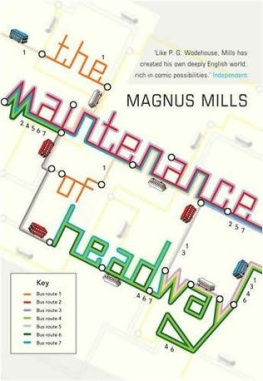Sylvie Germain - Magnus
Here you can read online Sylvie Germain - Magnus full text of the book (entire story) in english for free. Download pdf and epub, get meaning, cover and reviews about this ebook. year: 2008, publisher: Dedalus Ltd, genre: Prose. Description of the work, (preface) as well as reviews are available. Best literature library LitArk.com created for fans of good reading and offers a wide selection of genres:
Romance novel
Science fiction
Adventure
Detective
Science
History
Home and family
Prose
Art
Politics
Computer
Non-fiction
Religion
Business
Children
Humor
Choose a favorite category and find really read worthwhile books. Enjoy immersion in the world of imagination, feel the emotions of the characters or learn something new for yourself, make an fascinating discovery.
- Book:Magnus
- Author:
- Publisher:Dedalus Ltd
- Genre:
- Year:2008
- Rating:4 / 5
- Favourites:Add to favourites
- Your mark:
- 80
- 1
- 2
- 3
- 4
- 5
Magnus: summary, description and annotation
We offer to read an annotation, description, summary or preface (depends on what the author of the book "Magnus" wrote himself). If you haven't found the necessary information about the book — write in the comments, we will try to find it.
Magnus — read online for free the complete book (whole text) full work
Below is the text of the book, divided by pages. System saving the place of the last page read, allows you to conveniently read the book "Magnus" online for free, without having to search again every time where you left off. Put a bookmark, and you can go to the page where you finished reading at any time.
Font size:
Interval:
Bookmark:
Sylvie Germain
Magnus
THE AUTHOR
Sylvie Germain was born in Chateauroux in Central France in 1954. She read philosophy at the Sorbonne, being awarded a doctorate. From 1987 until the summer of 1993 she taught philosophy at the French School in Prague. She now lives in Pau in the Pyrenees.
Sylvie Germain is the author of eleven works of fiction, ten of which have been published by Dedalus. Her works of non-fiction include a study of the painter Vermeer, a life of the 20th-century Dutch mystic Elly Hillesum, a portrait of Warsaw, and a religious meditation. Her work has been translated into over twenty languages and has received worldwide acclaim.
Sylvie Germains first novel The Book of Nights, was published to France in 1985. It has won five literary prizes as well as the TLS Scott Moncrieff Translation Prize in England. The novels story is continued in Night of Amber, which came out in 1987. Her third novel Days of Anger won the Prix Femina in 1989. It was followed by The Medusa Child in 1991 and The Weeping Woman on the Streets of Prague in 1992, the beginning of her Prague trilogy, continued with Infinite Possibilities in 1993 and then Invitation to a Journey (Eclats de sel). The Book of Tobias saw a return to rural France and la France profonde, followed in 2002 by The Song of False Lovers (Chanson des Mal-Aimants).
Magnus, published in 2005, has won several prizes in France including the Goncourt Lycen Prize, which is selected from the 12 novels on the Goncourt shortlist by 1518 year old students at French High Schools. It was also shortlisted for the Grand Prix du Roman de LAcadmie Franaise.
THE TRANSLATOR
Christine Donougher read English and French at Cambridge and after a career in publishing is now a freelance translator and editor.
Her translation of The Book of Nights won the 1992 Scott Moncrieff Translation Prize.
Her translations from French for Dedalus are: 7 novels by Sylvie Germain, The Book of Nights, Night of Amber, Days of Anger, The Book of Tobias, Invitation to a Journey, The Song of False Lovers and Magnus, Enigma by Rezvani, The Experience of the Night by Marcel Balu, Le Calvaire by Octave Mirbeau, Tales from the Saragossa Manuscript by Jan Potocki, The Land of Darkness by Daniel Arsand and Paris Noir by Jacques Yonnet. Her translations from Italian for Dedalus are Senso (and other stories), Sparrow and Temptation (and other stories).
MAGNUS
To Marianne and
Jean-Pierre Silvrano
What has not been said at the proper time is perceived at other times as pure fiction.
Aharon AppelfeldPrelude
A meteorite explosion may yield a few small secrets about the origins of the universe. From a fragment of bone we can deduce the structure and appearance of a prehistoric animal; from a vegetal fossil, the presence long ago in a now desert region of a luxuriant flora. Infinitesimal and enduring, a plethora of traces survive time out of mind.
A scrap of papyrus or a shard of pottery can take us back to a civilization that disappeared thousands of years ago. The root of a word can illuminate for us a constellation of derivations and meanings. Remains, pit-stones always retain an indestructible kernel of vitality.
In every instance, imagination and intuition are needed to help interpret the enigmas.
Take a man whose memory is defective, long steeped in lies then distorted by time, plagued with uncertainties, and one day all of sudden made incandescent, and what kind of story can you write about him?
A sketch portrait, a confused narrative, punctuated with blanks, gaps, underscored with echoes, and ultimately fraying at the edges.
Never mind the confusion. The chronology of a human life is never as linear as is generally believed. As for the blanks, gaps, echoes and frayed edges, these are an integral part of all writing, as they are of all memory. The words of a book are no more monolithic than the days of a human life, however abounding these words and days might be, they just map out an archipelago of phrases, suggestions, unexhausted possibilities against a vast background of silence. And this silence is neither pure nor tranquil; there is an underlying murmur, a continuous whispering. A sound rising from the confines of the past to mingle with the sound gathering from all reaches of the present. A breeze of voices, a polyphony of whisperings.
Inside every person the voice of a prompter murmurs in an undertone. Incognito. An apocryphal voice that if you only lend an ear may bring unsuspected news of the world, of others, of yourself.
To write is to descend into the prompters box and learn to listen to the breathing of language in its silences, between words, around words, sometimes at the heart of words.
Fragment 2
On every object, every person, including his parents, he poses a gaze full of candour and amazement, studying everything with close attention. The gaze of a convalescent who has come close to death and is relearning to see, to speak, to name things and people. To live. At five years of age he fell seriously ill and the fever consumed all the words inside him, all his recently acquired knowledge. He is left with not a single recollection. His memory is as blank as the day he was born. However, it is sometimes traversed by shadows that come from he knows not where.
His mother, Thea Dunkeltal, devotes her entire time to reeducating her amnesiac and unspeaking child. She teaches him his language once again and gradually restores to him his lost past, recounting it episode by episode, like a story told in instalments of which he is the central character and she the good queen looking after him. She delivers him into the world for the second time by the sole magic of the spoken word.
In this fairy-tale by instalments, like all fairy-tales a spellbinding blend of the fearsome and the marvellous, every member of his family has the stature of a hero: he as the victim of a galloping fever that he has nevertheless managed to overcome; his mother in the role of the good fairy; his father that of a great doctor. In addition to this trio are two other characters, even braver and more admirable, who are his mothers younger brothers, killed in the war. It is his duty to acknowledge them with pride and gratitude for evermore. Because it was for him they sacrificed themselves by going off to fight in a distant land where the men are as cruel as the climate, so that he might grow up in a country of power and glory. And the child, who confuses the words enemy and illness, imagines that his warrior uncles died battling against his illness, died of cold and exhaustion driving back the fever-foe into an icy waste so as to extinguish its burning heat. Bearing their first names, he meekly allows himself to be transformed into the living mausoleum of these two heroes.
Seductive as this family epic full of nobility and sadness might be, it nevertheless suffers from one defect that, although apparently small, greatly upsets the child: his mother grants no place in it to Magnus, whom she treats in fact with scorn, even revulsion. However, Magnus and he, Franz-Georg, are inseparable. So he secretly introduces his companion into the legend, inventing scenes for him murmured at length into his ear (the one that bears traces of burning, to soothe it) when they are alone together. Scenes in which Magnus has a role equal to his own.
Note
Magnus is a medium-sized teddy bear with a rather worn coat of light-brown fur turned slightly orange in places. A faint smell of scorching emanates from him.
Font size:
Interval:
Bookmark:
Similar books «Magnus»
Look at similar books to Magnus. We have selected literature similar in name and meaning in the hope of providing readers with more options to find new, interesting, not yet read works.
Discussion, reviews of the book Magnus and just readers' own opinions. Leave your comments, write what you think about the work, its meaning or the main characters. Specify what exactly you liked and what you didn't like, and why you think so.

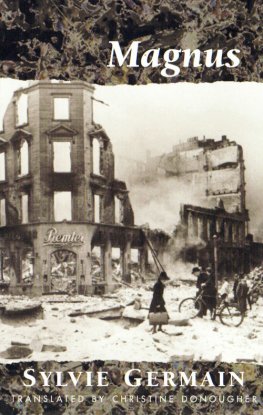
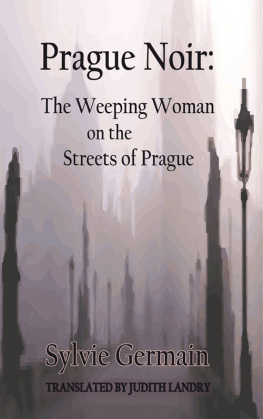




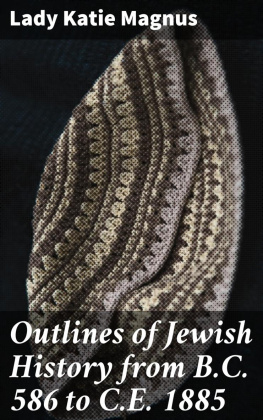
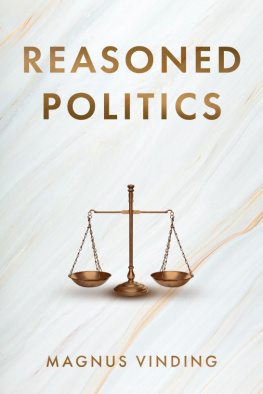
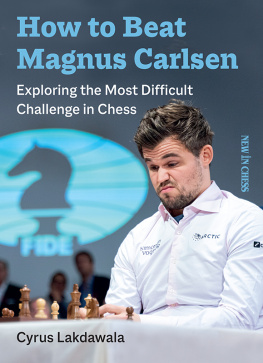
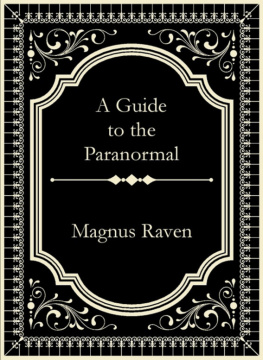

![Magnus Lie Hetland [Magnus Lie Hetland] - Python Algorithms: Mastering Basic Algorithms in the Python Language, Second Edition](/uploads/posts/book/124062/thumbs/magnus-lie-hetland-magnus-lie-hetland-python.jpg)
